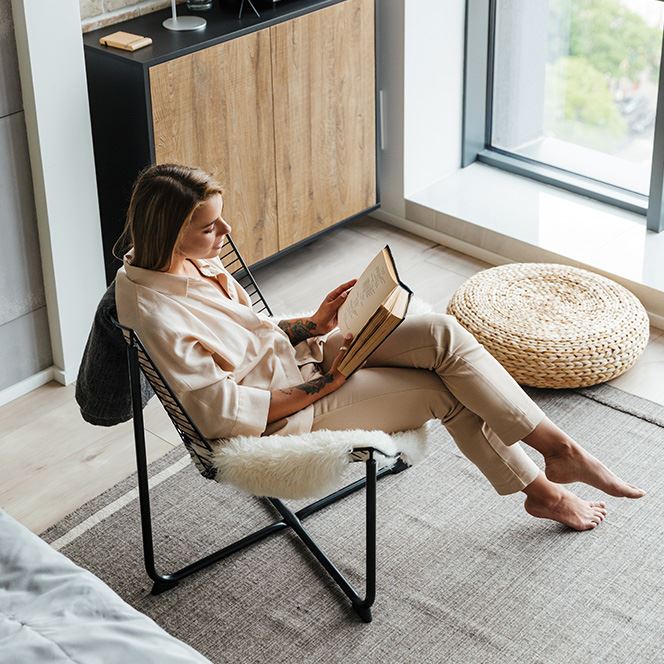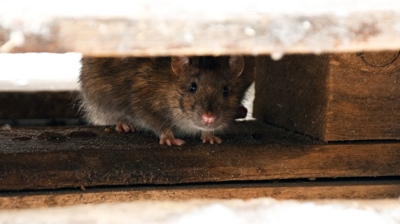
Should I Be Concerned About Spiders In My Plymouth Home?
Few people say, "Look at that cute little spider racing across my bathroom floor!" If you are like most people, you have a wad of toilet paper in your hand and are ready to dispatch that spider before you can even form that sentence. Spiders are not welcome guests in Plymouth homes! Sure, you may allow spiders to create webs so they can catch mosquitoes and other pests. And you may even tolerate seeing spiders living in your garage. But few people let them roam about in bathrooms, bedrooms, living rooms, kitchens, and other common areas. It is commonly understood that all spiders have fangs, and that all spiders use venom to subdue their prey. What you may not know is that some spiders can't bite you because their fangs are too weak, or that most spiders have venom that isn't strong enough to cause medical symptoms in humans. Today, we'll dig into this topic and shed some light on the risks of having spiders in your home. Once you know what you're up against, we'll look at naturally effective spider prevention tips that will help you keep common house spiders out of your home.
For direct answers to your spider questions, remember that the Combat Pest Control service team is here to help. Call us at any time.

Why Combat Pest Control Is The Right Choice For Your Home Or Business
-
Affordable TreatmentsPest control should not be something that’s too expensive to be within reach. Combat Pest Control offers a range of pest control options and plans to meet any budget while delivering the service you need.
-
Exceptional ServiceAs a local business that has served the Plymouth area for over 25 years, Combat Pest Control takes our commitment to our customers seriously. We treat you like our neighbors because you are!
-
Customized Pest SolutionsNo two homes or businesses are alike or have the same pest control needs. We take the time to identify your pest issues and assess your unique situation so that we can create a customized treatment plan to meet your needs.
-
Best-In-Class ServiceCombat Pest Control is a local company that treats our customers like our neighbors because you are! From our friendly, informative technicians to our no-nonsense guarantee, you won’t find better service anywhere else.
The Many Types Of Spiders You Can Find In Plymouth
We have quite a variety of spiders in Plymouth. Some have long legs and hang out in your garage or shed. Some are big and hairy and love to startle you by appearing in places you don't expect them. Most are web-making nuisances. If you have vegetation on your property, we're sure you've experienced the feel of having a web cling to your hand, arm, or face. It is unpleasant.
It would take pages of information to cover all types of house spiders that appear in Plymouth homes. Let's zero in on what matters most. Here are some characteristics of common spiders in our region.
- Outdoor aerial web builders capture flies and other flying pests. These hang out in landscaping, gardens, and other areas of vegetation. They typically have a painful bite, but they don't prefer to bite people. Some Plymouth residents keep these spiders around to help reduce mosquitoes.
- Ground web builders are hunter spiders that use their webs to guard themselves as they retreat. These spiders move about in your yard or home and use their acute eyesight to track prey and spring on their prey to subdue them. They'll help with the control of creepy crawling pests.
- Indoor spiders are unique. They don't prefer to live outside and offspring that hatch indoors may not survive if you capture them and put them outdoors. These spiders live mostly in wall voids and keep out of sight unless an indoor insect infestation flares up. As ants, carpet beetles, clothing moths, and other unwanted pests attempt to get inside your home, these indoor spiders help to stop them.
Isn't it great having spiders? Is it actually a good thing to have spiders living inside your home or creating webs on your exterior and in zones of vegetation on your property? Let's take a look at the bigger picture.


A member of our team will be in touch shortly to confirm your contact details or address questions you may have.
Why A Spider Infestation In Your Home Can Be Problematic
Sure, spiders are beneficial critters. They eat other pests. While that can seem like a good reason to keep them around, we recommend that you don't. Not only are spiders not nearly as effective at controlling pests as human pest control professionals, but those spiders also present problems of their own.
- Spiders are not a welcome sight. They are creepy bugs that crawl around in your home and make you feel uncomfortable.
- Most spiders bite. The results of a spider bite vary depending on what species of spider bites you. Some spider bites feel like a pinprick. Some feel like a bee sting.
- Venomous spiders are a threat. If black widow or brown recluse spiders find their way into your home or establish themselves near your home, they pose a risk. These two have potent venom capable of making you sick and causing health concerns.
- Spiders reproduce. There are few things as disturbing as finding a wall covered in tiny baby spiders. It is also disturbing to stumble upon a female wolf spider carrying dozens of tiny spiders on her back.
When you see spider activity in your home, consider contacting Combat Pest Control for spider pest control in Plymouth. We can arrest spider activity indoors and provide exterior protection to prevent spiders from continually entering your home from the outside.

Hear From Our Happy Customers
They really do say it best!
At Combat Pest Control, your satisfaction is our priority! See for yourself what our customers have to say about working with us.
-
"They were great!"
The owner came out himself and he found a second huge yellow jacket nest that we didn't even know was there and he took care of that nest too.
- Jill G. -
"Highly recommend!!!"
Combat is the best! We couldn’t live in Hanover with John and his crew! Very responsive and thorough.
- Michelle L. -
"Professional, Friendly, & Informative"
John was professional, friendly, and informative. I would highly recommend John and Combat Pest Control to anyone, and if needed in the future they will be the company I call first for any type of pest control in my home.
- Michelle R. -
"The Best!"
Chad is super knowledgeable and friendly. Appreciate his work as well as the rest of the Combat team!
- Robert P. -
"Combat is great!"
They're easy to work with, pricing is great and they always manage to get someone to my house when needed. Having a dedicated technician is helpful too to build rapport with the company.
- Anthony G. -
"I strongly recommend Combat Pest Control"
This is our third year with them. We first called because of ants in the house. I couldn't stop them. Combat did the job and we are ant-free. Combat responds quickly to an ant in the kitchen and wasps and bees nests. Thank you Combat !
- Mark C. -
"Highly recommended."
I'm very pleased with John's pest control performed on my house in south Weymouth. He has found the nest of the ants. I really appreciate his professionalism. Will hire them again and again.
- Shirley H. -
"Made Everything Easy for Us"
John & the Combat team know our house well and the critters that challenge us. He's quick to respond to any attempted incursion and quickly responds to defeat them. They also take great care in working around our dogs
- Kristen P.






